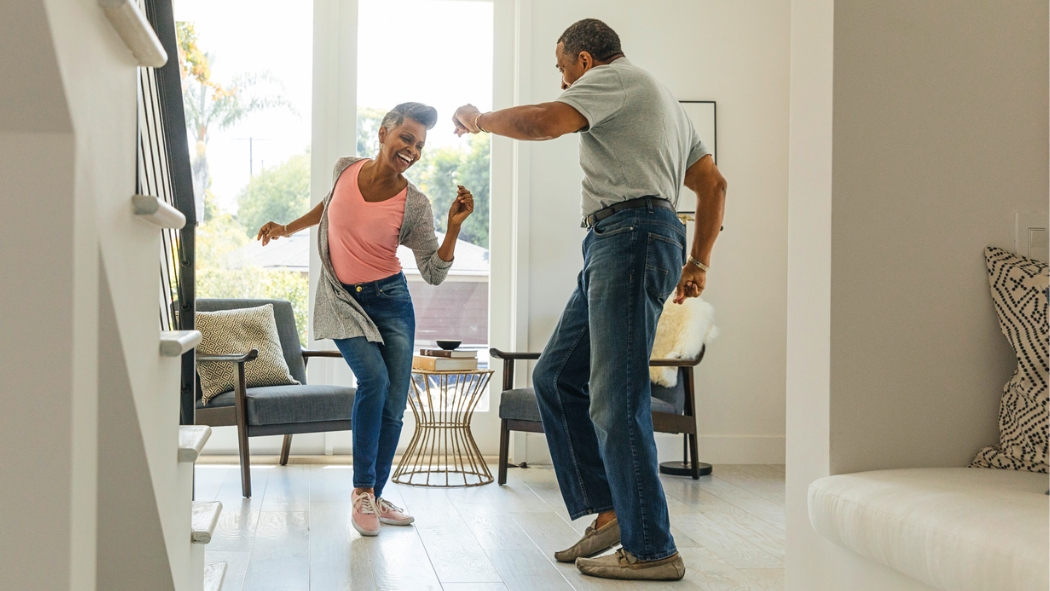Vitality is the ability to pursue life with health, strength, and energy. The Cigna Group found that people 65 and older have the highest average vitality score of any age group, and those scores increase steadily from the ages of 65 to 80.

Quick Take
- Vitality provides the ability to pursue life with health, strength, and energy.
- Most people 65 and older have and utilize health insurance.
- Healthy habits increase as people age.
On average, people in the United States who reach age 65 can expect to live about 18 more years – and a report from The Cigna Group shows they can expect to enjoy a high degree of vitality, providing them with the ability to pursue life with health, strength, and energy.
Our research, which is based on a survey of more than 10,000 adults of all ages, found that seniors have the highest average vitality score of any age group (71.5 vs. 67.2 for all adults). Even people a few years younger – 63 and 64 – tend to have lower vitality, with an average score of 68.9.
In addition, our research found that average vitality scores increase as older people age, reaching a high of 72.9 for those ages 75-79 and 73.1 for 80+. And while men tend to enjoy higher vitality than women in the general population, men and women have parity throughout their older years.
“Our research uncovered a number of different hypotheses behind why people ages 65 and older might have higher vitality than those who are younger,” said Dr. J.B. Sobel, chief medical officer for Cigna Healthcare’s Medicare Advantage business. “Seniors are more likely to embrace healthy habits like regular doctor’s visits and more consistent physical activity. They also tend to eat healthier than some younger Americans. The research confirms that seniors are more optimistic, less lonely, more resilient, and have more financial freedom than younger people, which also adds to their increased health and vitality.”
Medicare members make the most of their health benefits
Older people tend to trust their doctors, feel appreciated and respected by their doctors, and say their doctors listen to them. Medicare becomes available to most Americans at age 65, and those who enroll in one of the Medicare program options tend to be more engaged with their health care. Our survey found that 98% of the respondents in this group have health insurance, including the 76% enrolled in some form of Medicare.
Compared with other older adults, people enrolled in Medicare are more likely to have visited a doctor in the last year for an ongoing health problem (95% vs. 90%) and to have had an annual physical (89% vs. 77%). Older people on Medicare also are more likely to be living with a chronic condition than people in the general population (85% vs. 72%), yet 73% say they are receiving good medical care, compared with just over half (51%) of all adults.
Aging well: Seniors tend to be more optimistic, less lonely, and more resilient
People over 65 are more likely to have a support system, with 70% saying they have people they can trust when they need help, compared with 54% of all adults. In addition, older adults are more likely to practice healthy behaviors. For example, older adults told researchers they exercise more (30% get at least 5 hours of exercise a week vs. 33% of all adults), are more likely to include fruit in their daily diet (44% vs. 35%), sleep 5 to 8 hours night (82% vs. 78%), and regularly wake up rested (56% vs. 45%).
Although people 65 and older are more likely to have been diagnosed with a chronic condition, 56% are classified as highly resilient vs. 46% of all adults, and the older adults are more likely to feel they can bounce back after illness, injury, or another hardship (53% vs. 44%).
In addition, older adults are less likely to live with clinical depression or anxiety (12% vs. 25%), more able to control how they react in times of stress (52% vs. 43%), and more likely to feel capable of managing their emotions (59% vs. 45%).
Only 38% are lonely, compared with 58% of all adults. Older adults enjoy the people they spend time with (67% vs. 55%), are more likely to make time for relationships (62% vs. 53%), and possess the social skills they need to make friends (59% vs. 49%).
Older people also report better support from loved ones, with 69% saying their family has supported them through life, compared with 56% of all adults.
Enjoying the fruits of their labors
Nearly three in four people over 65 are retired, but even the 28% still in the workforce report a greater sense of autonomy than younger people. People 65 and older are more likely to have an adequate income, giving them financial freedom (52% vs. 40% of all adults). They are confident they can achieve their goals (54% vs. 45%), pursue their interests (43% vs. 35%), and feel a sense of choice and freedom in the things they undertake (53% vs. 39%).
“As our study shows, many older people in America are thriving,” Dr. Sobel said. “Many have the resources they need to address their health issues, a strong support system of family and friends, and the time and life experiences that allow them to pursue the activities that matter the most to them. Younger people can learn a thing or two from older adults when it comes to pursuing life with a high degree of vitality. ”

Older, wiser, and more vibrant
Recent data from the Evernorth Vitality Index indicates that seniors enjoy the highest overall vitality score of all age groups.